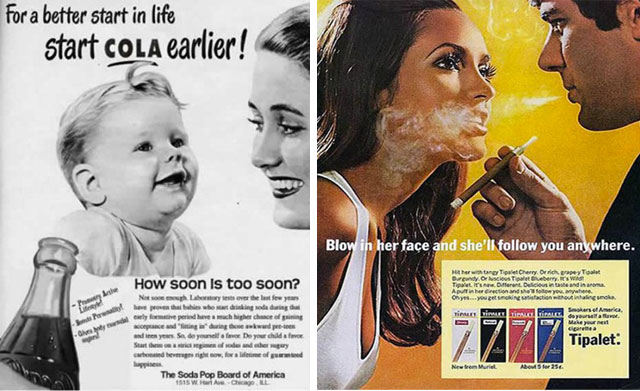How political correctness fails us all
One of the most powerful TV commercials I’ve seen in years has been banned for a reason that has left the entire advertising community wondering how to respond.
The spot, produced by Ogilvy Dublin for the Irish Society for the Prevention of Cruelty to Children, aims to motivate people to help fight for children’s rights by laying bare the emotional and physical toll of abuse. Deeply moving and painfully real, the commercial shows a boy being beaten at home while still managing to articulate, in grown-up language, a manifesto for what children deserve in life and the future he dreams for himself in a present that’s unbearable.
See Adweek’s detailed overview of the making of the spot
The spot focuses entirely on the child. You see a boy attacked with increasing levels of violence, while maintaining his stoic composure. The person behind the abuse is mostly hidden from view, allowing all the emphasis to be on the boy, creating a strong emotional connection with the child. The ad is heartbreaking in its power.
In a stunning move that highlights the absurdity of the minefield of political correctness, the Irish Advertising Standards Authority has banned the ad. As Adland reports, the ad is inappropriate because it isn’t balanced enough in portraying the gender equality of the abuser. In other words, even though we don’t notice (and aren’t supposed to notice) the abuser, because it is a man and not both a man and woman doing the hitting, the ad is inappropriate.
As the ISPCC says in its official response, “any attempt to focus on whether the adult is a male or female is clearly missing the point and purpose of the ad.” Anyone involved in advertising understands this simple truth.
If the ad tried to show both a man and woman beating the child, the emphasis would switch from the child to the abusers, missing the purpose of the message and destroying its emotional impact. The viewers would begin to notice, instead of the child, the people behind the abuse. That’s a huge shift and takes the message away from its objective.
Take a look at the ad and see what you think:
I have seen ever increasing levels of political correctness impacting the advertising world, and these problems have become more and more absurd.
Even though you may wonder how some TV spots manage to reach the air, every commercial has to pass through various committees and rights group approvals before it runs. Each committee has its own issues and concerns, from race equality to gender equality to age equality to whether it meets parental standards and cultural sensitivities for people groups that may not even see the spot! These steps not only increase the cost of commercials, but impact development time, sometimes forcing rewrites and reshoots for reasons that are nothing short of bureaucratic nonsense.
I’m not attacking the intention of these processes. Steps to approve ads became necessary because of the ridiculous lack of sensitivity that we saw in these areas. The way women were portrayed needed to be addressed. People had to step in and put a stop to the stereotyping and other disturbing issues found in advertising. Consider these two actual ads from years past:

Did soft drink producers really promote the idea that giving babies sugary drinks would make them more successful in life? Did marketers really claim that a woman would bond herself to a man because he blew smoke in her face? Apparently so.
But now the pendulum has swung too far in the other direction. We haven’t arrived at gender equality at all. Instead, gender stereotyping has simply moved in predictable directions. Have you noticed how 100% of the total idiots shown in television advertising are white males? Is this what gender equality has come to?
Committees can’t create. By their very nature, committees can only water down creative messages by attempting to meet the lowest common denominator in the approval process. A brilliant idea is presented. One member of a committee doesn’t like something. A compromise is suggested. Another committee member doesn’t like something else. Another compromise happens. Before you know it, the original idea is no longer recognizable. The committees don’t care. Their job is not dependent on whether the message remains intact. They see only the black-and-white objectives laid out in their guidebook.
In the case of the IASA, it’s unclear what solution will satisfy that committee’s guidebook. Do they want another similar ad that shows a woman as the perpetrator? Or do they want each ad to feature both genders — a demand that would destroy the entire impact of the message.
Children need to be protected, nurtured and given hope. The ad does a wonderful job of moving me to think about the issue of child abuse. I’m personally not a supporter of codified “children’s rights” because they create a host of cultural problems. There’s already enough legal protection for children. The problem of abuse will not disappear because kids are given new powers they aren’t mature enough to understand. But my disagreement with the finer point of the campaign does not limit my concern about this ridiculous Standards Council decision. What is happening here is wrong, and it deserves attention.
The only silver lining in all of this is that through the controversy of these crazy decisions, ads like this one receive much more exposure on the web and YouTube. That ultimately gets the message across just as effectively as if the ad had run, and perhaps more so. Yet it shouldn’t come to this.
In the end, political correctness hurts us all. There needs to be common sense in the process or communication itself has no hope. If we don’t act soon, George Orwell’s chilling implications are not far off.



No Comments